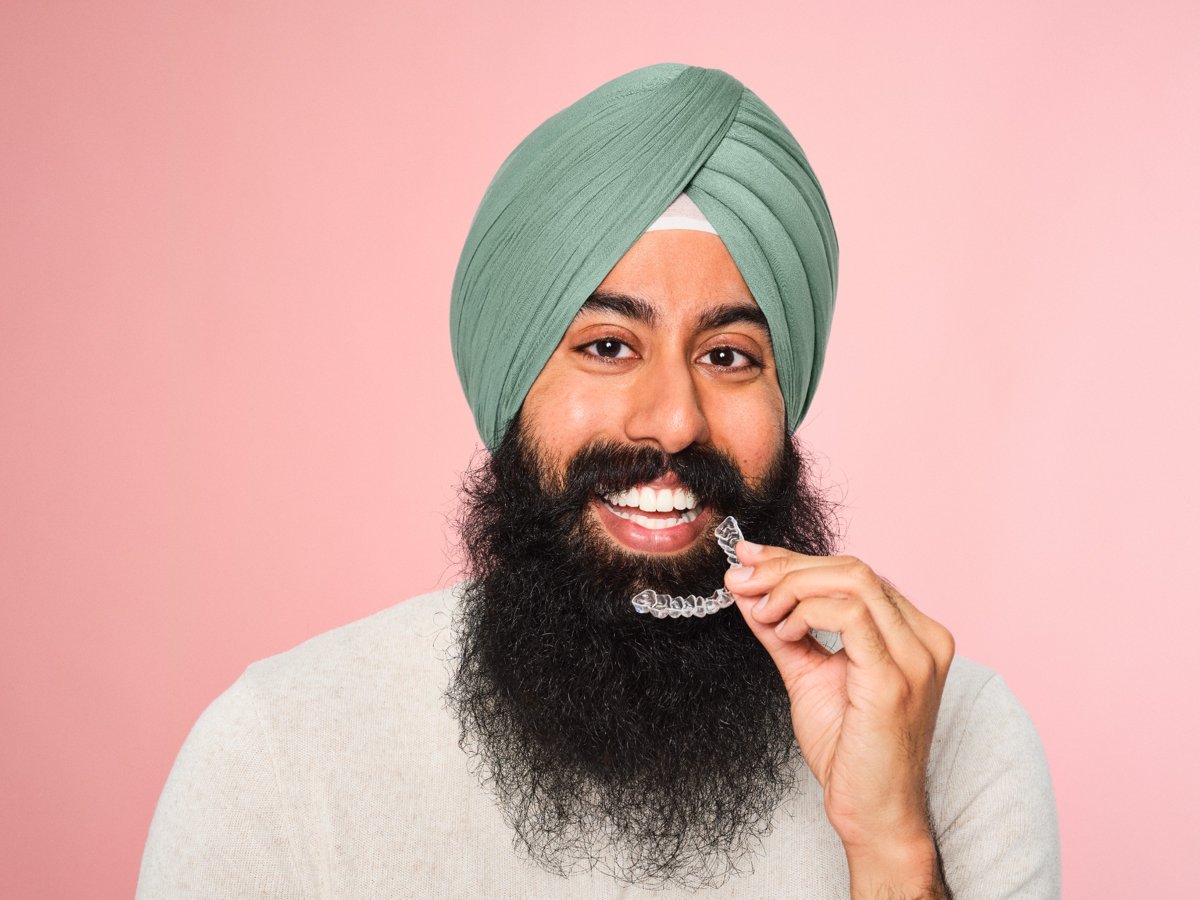Different Types of Dental Crowns and Their Benefits
Learn about the different types of dental crowns—ceramic, metal, porcelain, and more. Discover their pros, cons, and which crown is best for your smile.

What are Dental Crowns? How are Dental Crowns Used?
Has your dentist recommended that you get a dental crown? Did you know there are several types of dental crowns?
Dental treatments always sound intimidating but understanding what to expect in your dental care can help ease those jitters. In this guide, we’ll explain the different types of crowns, how they are used, and why your dentist recommends them.
Dental crowns are a very common restorative dental treatment. They are used after root canals,and to treat cracked or damaged teeth. Think of a crown like a tooth-shaped cap that restores function to teeth, and improves your smile’s appearance. Crowns also help maintain your natural tooth structure, even if you have tooth decay.
There are several types of crowns, however. How do you know which one is right for you? There are benefits and drawbacks to each style. We’ll walk you through the different types of crowns so you know what to expect at your next dental visit.
What Is a Dental Crown? Understanding What Crowns Do
A dental crown is a custom-made cover that fits over a damaged, cracked or decayed tooth. It’s made to replicate a tooth’s shape, size, strength and appearance. It’s also designed to protect a weak tooth for further damage. Many people have crowns, so you’ve probably seen one even if you didn’t know what they were called, or how they function.
Why You Might Need a Dental Crown
- After a root canal to protect a treated tooth
- Restoring function to a tooth damaged or weakened by decay
- Improving appearance of a discolored or misshapen tooth
- Aligning a tooth
- Supporting a tooth with a large filling or a dental implant
- Holding a dental bridge in place
- Maintain a natural tooth
A crown is designed to last for years with proper care and it should be considered a long-term investment in your oral health care.
Types of Dental Crowns: Pros and Cons
There are several types of crowns. Crown types vary based on different types of materials, which means they each have their own set of benefits and drawbacks.
Porcelain or All-Ceramic Crowns
Porcelain crowns are made entirely of ceramic material and are known for their natural look. They’re a top choice for restoring front teeth because they mimic the color and translucency of natural enamel.
Pros:
- Excellent cosmetic results
- Can be color-matched to surrounding teeth
- Metal-free—ideal for patients with metal allergies
- Biocompatible with gum tissue
Cons:
- Less durable than other materials
- Can chip or crack under heavy pressure
- Not ideal for back molars or high-pressure areas
- Not recommended for patients who grind their teeth
- Higher cost compared to resin or metal crowns
Consider a porcelain crown for front teeth or highly visible areas where aesthetics are a priority.
Metal Crowns (Gold or Metal Alloys)
Metal crowns have been used for decades and are still prized for their strength and longevity. This type of crown is made from gold, platinum, or base-metal alloys like nickel or chromium.
Pros:
- Extremely durable and long-lasting
- Less tooth structure needs to be removed
- Less wear on opposing teeth
- Resistant to chips and fractures
Cons:
- Metallic appearance—not suitable for visible teeth
- May cause allergic reactions (especially with nickel)
- Not typically recommended for patients seeking a natural look
Consider a metal crown for teeth such as back molars and out-of-sight teeth, where strength matters more than appearance.
Porcelain-Fused-to-Metal (PFM) Crowns
PFM crowns combine the strength of metal with the natural appearance of porcelain. This type of crown has a metal core that provides support, while the porcelain overlay creates a tooth-like appearance.
Pros:
- Stronger than all-ceramic crowns
- Better aesthetics than all-metal options
- Durable and versatile for most teeth
Cons:
- Porcelain layer may chip or wear over time
- Metal base may show as a dark line near the gum
- Can cause more wear on opposing teeth than metal crowns
Consider a PFM crown when strength and appearance are both important, such as in front or back teeth.
Zirconia Crowns
Zirconia has recently emerged as a new kind of ceramic crown. It’s gaining popularity due to its strength and aesthetics. It can be solid or layered, allowing for control over translucency.
Pros:
- Extremely durable and fracture-resistant
- Biocompatible with gums and soft tissue
- Can be color-matched to nearby teeth
- Less likely to cause allergic reactions
Cons:
- Opaque appearance in some forms
- May be abrasive to opposing teeth if not polished correctly
- More expensive than traditional ceramic or metal crowns
Consider a zirconia crown when you want both durability and aesthetics, especially in molars.
Resin (Composite) Crowns
Resins crowns, which are made from composite materials, are typically used as a temporary option and are easy to produce in-office.
Pros:
- Less expensive than other options
- Quick and simple to apply
- A good short-term or budget-friendly choice
Cons:
- Least durable option
- More prone to wear, fractures, and staining
- Not suitable for long-term use
Temporary crowns or short-term restorations are best before a permanent crown is placed. They protect the natural tooth against infection or damage.
How to Choose the Right Dental Crown
Your dentist will make recommendations of the best crown for you based on multiple factors. They will guide you to a crown that suits you, based on personal aesthetics, function and cost.
Key Considerations
Tooth Location
- Front teeth will benefit from aesthetic materials like porcelain
- Back teeth need materials that can withstand sustained tension, such as zirconia or metal
Durability
- People who grind, clench or suffer from bruxism will need high-strength materials like metal or zirconia.
Budget
- Metal and resin crowns tend to be more affordable.
- Porcelain and zirconia offer superior aesthetics but may cost more.
Insurance Coverage
- Some materials may be partially or fully covered, but this varies by provider and coverage.
Metal Allergies or Sensitivities
- If you have known sensitivities to metal, consider all-ceramic or zirconia crowns.
Insurance Coverage
- Some materials may be partially or fully covered, but this varies by provider and coverage.
Timeframe
- Resin crowns are great for quick, temporary solutions.
- Permanent crowns may take a few visits, especially if lab-created.
How Long Do Dental Crowns Last?
Dental crowns are designed to last for decades. Typically, a crown will last 10 to 15 years but with proper care, some can last 20 years or longer.
How to Extend the Life of Your Dental Crown
- Brush and floss daily
- Avoiding chewing hard candies and ice
- Don’t use your teeth as a tool (such as opening packages)
- Wear a night guard if you grind or clench at night
- Maintain regular dental visits for professional cleanings and exams
Common Questions about Dental Crowns
Q: Does it hurt to get a dental crown? A: Most patients experience minimal discomfort. The procedure is performed with local anesthesia to keep you comfortable.
Q: How many appointments does it take to get a crown? A: Typically two visits—one to prep the tooth and take impressions, and a second to place the permanent crown. Some practices offer same-day crowns using CAD/CAM technology.
Q: Can I eat normally with a crown? A: Yes! Once your crown is securely in place and any numbness wears off, you can eat most foods. Avoid very sticky or hard foods that could damage the crown.
Q: Will my crown look natural? A: Absolutely. Crowns made from porcelain, zirconia, or ceramic can be color-matched to blend seamlessly with your surrounding teeth.
Q. Will insurance cover a crown?
A. Insurance coverage varies based on plans and provider. We can advise on what to expect with pricing and offer options.
The Right Crown for a Healthy Smile
You might need a crown after getting a root canal or you may need a crown to restore a damaged tooth. Regardless of what you need a crown for, there’s a style that works for you. Each one has its own benefits, costs and drawbacks. Your dentist will be your best resource for your questions and concerns.
At Tend, our top-rated, friendly staff will explain all the options and help you choose a crown that offers comfort, durability, and a natural look. They can advise on what to expect on pricing options, what insurance does and not cover and schedule any follow ups or post-care check ups.
Not Sure Which Dental Crown Is Right For You?
Tend has multiple convenient locations and early, late and weekend appointments available. Our team will explain your options to help you choose the best dental crown for your smile needs, your lifestyle and budget.




